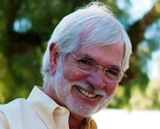An excerpt from Mitt Romney and the Mormon
Church: Questions
The election of Mitt Romney as president of the United States would represent the culmination of a century-and-a-half quest by the Mormon Church for national political power in preparation for the Kingdom of God.
Former Massachusetts Governor Mitt Romney's candidacy is only the last in a series of powerful "callings" to the members of his Mormon royal family, extending from his great-great-grandfather Miles Romney, who helped build Joseph Smith's second temple, through his great-great-grandfather Pratt, who was one of Joseph Smith's first Apostles, through his cousin Marion Romney, who served in the First Presidency of the Church, and through his father Michigan Governor George Romney, who tried and failed to be elected president.
Not only because of his royal family, or because of the high positions he and his family have held in the Church and government, Mitt Romney is no ordinary Mormon because he is what is known as an "iron-rodder" in the Church. These are the members who follow "a straight and narrow" path and who "are certain that prophetic revelation and scriptural instruction ... will lead them toward a righteous life and, eventually, godhood."
As a student at Brigham Young University, Romney would testify during monthly "fireside testimonies" to his "belief that he lived in Heaven before being born on Earth, [and] that he became mortal in order to usher in the later days,..."
Recalling the controversy in the early 1970s about blacks receiving the priesthood, fellow BYU students say that, [Mitt] "Romney appeared to have embraced the prevailing view that the ban was the word of God and thus unalterable without divine intervention."
According to fellow Church members in Boston, Romney wept during services "with spiritual fervor and believed in a traditional brand of Mormonism that sought daily divine intervention." He would often begin speeches by explicitly channeling the Holy Spirit in the hopes of imbuing his remarks to the congregation with an aura of truth."
During monthly "fast and testimony meetings," Romney would become teary-eyed as he testified, "I know that Joseph Smith was a prophet and that the church is true."
The election of Mitt Romney would present an irreconcilable conflict of interest. If asked, he could not deny that he has been obedient to the priesthood hierarchy and has taken vows in the temple to consecrate every blessing, including the presidency of the United States, to the Church.
Even without being instructed to do or not do an official act concerning a Church interest, those vows and his more than 50 years of service to the priesthood would compel him to use the blessings of his office to benefit the Church in every case where the interests of the Church might conflict with the needs of the Nation.
Romney has taken an oath of obedience and has been indoctrinated in a culture of obedience to divine power. It's easy for him to say "no authorities of my church ... will ever exert influence on presidential decisions," but what would he do if the living Mormon Prophet experienced a divine revelation and ordered him to protect the Mormon Church and its Kingdom of God. As president, Romney would have the political and military power to do so, and he would be spiritually powerless to do otherwise.
Without resigning from the Mormon Church, and thereby becoming an apostate and outcast, Mitt Romney could not take any position contrary to the Mormon authorities because his very spirituality is judged by them. Not only can he be denied access to the temple, if he acts contrary to their wishes, he can be deprived of his access to the "Celestial Kingdom" upon death and all of its attendant rewards.
Over the past 30 years, a tremendous power has come to be concentrated in the "unitary presidency" of the United States, including the power to declare martial law by executive orders and to indefinitely imprison citizen "terrorists" in military facilities. It is, therefore, essential that the People, who are being asked to vote for a highly-religious candidate, receive answers to legitimate questions about his beliefs, when the spiritual obligations of that religion may be paramount to the political duty owed to the People.
Perhaps as a result of his Mormon upbringing in which questioning is suppressed, Mitt Romney is operating a campaign of secrecy, in which he avoids answering questions about many issues, including the amount of taxes he has paid and the religious deductions he has claimed beyond the last two years.
(Note: You can view every article as one long page if you sign up as an Advocate Member, or higher).






